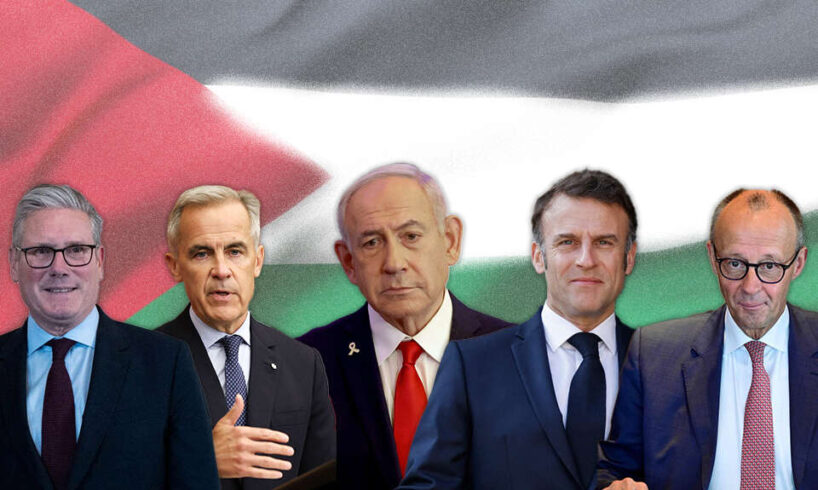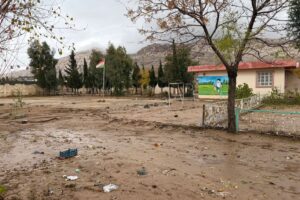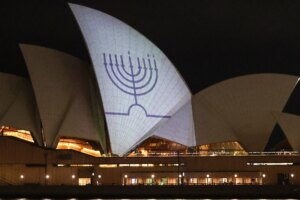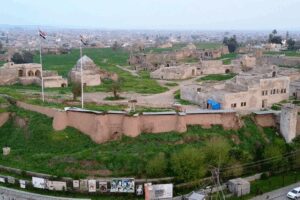
“You don’t understand what we’re going through,” a senior European leader told President Isaac Herzog. While Herzog was fighting to keep Israel in the EU’s Horizon research and innovation program, the leader’s complaints came off as tone-deaf, considering Israel is the one with dozens of hostages trapped in Gaza’s tunnels. Yet even leaders like him – as well as those of Germany, Italy, Hungary, the Czech Republic, and others – whom Herzog, Netanyahu, and Gideon Sa’ar had recently engaged with, are under immense pressure.
Europe is being battered by a coordinated propaganda assault from Hamas, Qatar, the far-left, antisemitic currents within Europe, the United Nations, social media, and mainstream news outlets. These entities, either in concert or separately, have joined forces to portray Israel as a war criminal committing genocide in Gaza through starvation tactics. Against this tidal wave of hostility, Israel has largely gone silent. Last-minute backchannel efforts were made, but the public stage was ceded entirely to Israel’s enemies.
This media onslaught quickly escalated into political action. Western leaders began announcing intentions to recognize a Palestinian state. Among them was French President Emmanuel Macron, politically weakened at home, who scored easy points at Israel’s expense.
Macron in historic announcement: France will recognize a Palestinian state. Photo: EPA/AFP/Reuters EPA/AFP/Reuters
A more concrete threat came in the form of a proposed EU penalty for Israel, initiated by European Commission President Ursula von der Leyen, normally one of Israel’s staunchest allies. The plan aimed to appease Israel’s critics within the EU bureaucracy by excluding Israeli firms from future cyber tech projects. But in a rare success for Israeli diplomacy, a counteroffensive led by Italy and Germany torpedoed the proposal.
Still, the diplomatic conversations were far more strained than they were just weeks ago. Take German Chancellor Friedrich Merz, for example. He harshly confronted Netanyahu twice this past week. Just a month ago, as Israeli Air Force jets targeted Iran’s nuclear infrastructure, Merz had praised Israel for “doing the world’s dirty work.” Now, he has reversed course, expressing “concern” over Israel’s policies and announcing an airlift to Gaza.
“We want to work with your scientists,” another senior European leader told his Israeli counterpart in one such call. Figures like Merz and von der Leyen understand both Europe’s moral obligation to Israel and the immense value the EU derives from cooperation with Israeli tech and science. But under the political pressure generated by Hamas’ narrative, even friendly politicians are being pushed into a corner. It turns out political opportunism transcends borders.
Merz’s reversal is a direct result of the effectiveness of Hamas’ campaign, while Israeli public diplomacy has been left to dry. Had Israel proactively communicated its side, employing the hostages to push back against the recognition of Palestinian statehood, and giving pro-Israel allies accurate information before hostile declarations were made, it might have blunted the damage or prevented it altogether.
Instead of praising The New York Times for a correction regarding a sick infant from Gaza, Israel should have revealed that the paper’s photographers in Gaza are members of Hamas. Had it done so, perhaps President Donald Trump wouldn’t have spoken on behalf of First Lady Melania Trump about “starvation in Gaza.” But Israel has remained silent, and that silence begins at the top – Prime Minister Benjamin Netanyahu.
The clarification stated that after publication, the newspaper learned from the child’s doctor that he suffers from underlying medical conditions. Photo: Screenshot
For reasons even his most loyal supporters struggle to comprehend, Netanyahu has deliberately weakened Israel’s public diplomacy infrastructure. He has met with the National Public Diplomacy Directorate only once since the war began, on October 10, 2023. Since then, the very officials responsible for briefing all public diplomacy units on government messaging have been left in the dark. The prime minister simply hasn’t communicated with them.
Similarly, Netanyahu has never consulted professional officials on strategic media moves. If he had, they likely would have advised against appearing on the “Nelk Boys” podcast, whose hosts later likened him to Adolf Hitler.
Netanyahu at an event held at the Waldorf Astoria Hotel. Photo: Yoni Rikner Yoni Rikner
To those who have raised the issue with him, Netanyahu claimed that public diplomacy is unnecessary because “facts speak for themselves.” This is a puzzling stance. While policy always plays a central role, Netanyahu of all people should understand the power of words. After all, he has long said that his political strength in the US stems from his recognizability and communication skills.
As for policy, a visit by US envoy Steve Witkoff in the next 24 hours is expected to clarify the next steps. A deal with Hamas remains contingent on Israel accepting the terrorist group’s capitulation terms, something Netanyahu adamantly rejects. On the other hand, “siege” or “annexation” strategies could result in massive diplomatic fallout. What has unfolded with Europe this week is just a preview. Meanwhile, a swift military victory over Hamas appears increasingly unfeasible. The hostages, it seems, have become the terrorist group’s ultimate insurance policy, some say a permanent one.





